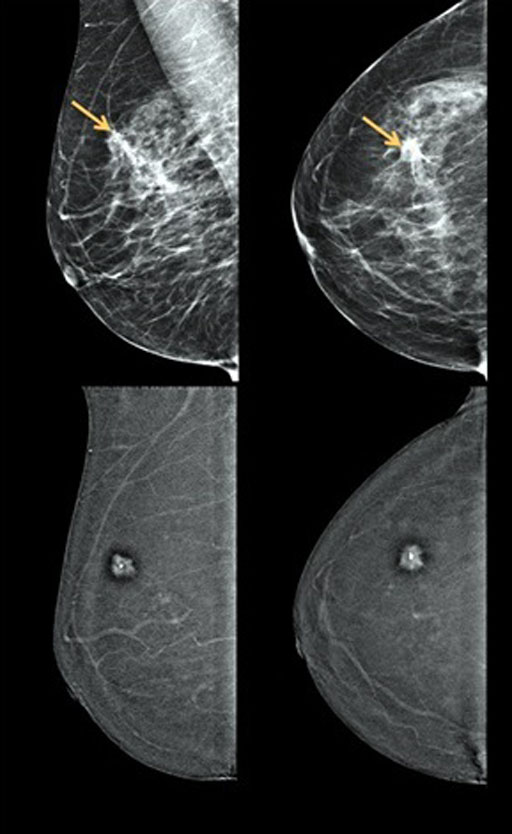Experts Recommend Personalized Approach to Breast Cancer Screening
By MedImaging International staff writers
Posted on 03 Jan 2017
Experts in the US have recommended a risk-based personalized approach to breast cancer screening to ensure improved, safer and less expensive cancer care.Posted on 03 Jan 2017
Current 5-year breast cancer survival rates have reached 90% as a result of both improved treatment and screening, but this could still be improved further by taking into account the differences between women with dense breasts, those with a personal history of breast cancer, and carriers of the BRCA1 and BRCA2 gene mutations for example.

Image: Digital mammograms (top) compared with Contrast-Enhanced Digital Mammography (CEDM) images (bottom) for breast cancer screening (Photo courtesy of Dr. John Lewin).
The recommendations presented by the experts from the George Washington University (Washington DC, USA) and the Memorial Sloan Kettering Cancer Center (New York, NY, USA) include annual screening using both mammography and ultrasound modalities for women aged 40 and older who have a lifetime risk of breast cancer. In addition, since mammography screening alone is unable to find a third of all cancers in women with dense breast tissue, they could benefit from the addition of ultrasound screening, as revealed in a recent study of 15,000 women.
Mammography screening is not suitable for women under 40 years of age who carry the BRCA1 mutation. As an alternative, annual or biannual Magnetic Resonance Imaging (MRI) scans could increase cancer detection and reduce radiation exposure for BRCA1 carriers aged 25 to 40. For BRA1 carriers older than 40, alternating MRI and mammography screening every six months could be suitable. Contrast-Enhanced Digital Mammography (CEDM) is another possible alternative for routine mammography screening.
Related Links:
George Washington University
Memorial Sloan Kettering Cancer Center








 Guided Devices.jpg)





